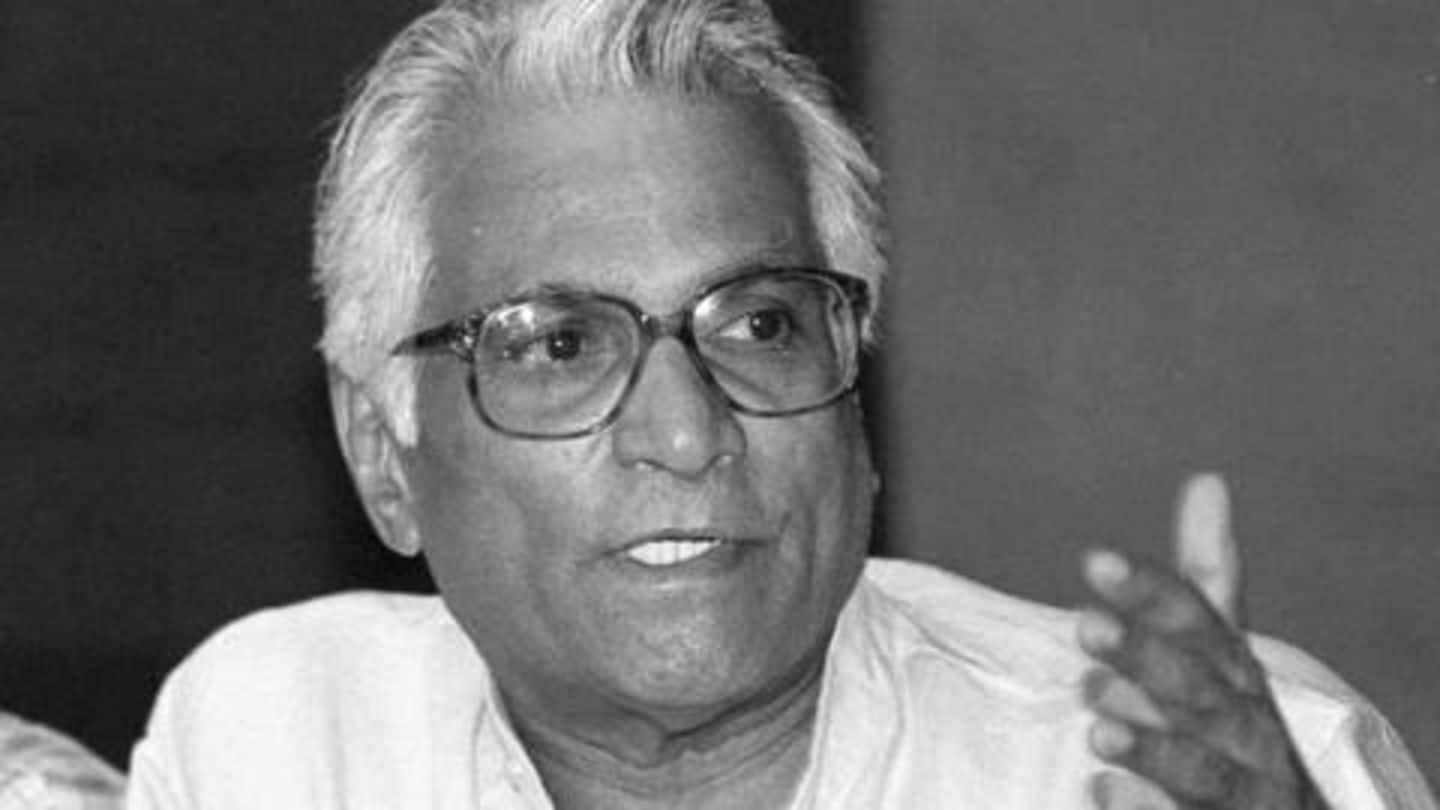
What made anti-nuclear test crusader George Fernandes participate in Pokhran?
What's the story
George Fernandes' demise on Tuesday, January 29, has left a void in Indian politics and leaders across the spectrum have united to remember the fearless man. Aged 88, Fernandes died after a prolonged illness. His last rites will be held on Wednesday. The firebrand leader presided over Kargil war and Pokhran tests which inscribed his name in history. Here's looking at his illustrious career.
Early life
A Mangalorean, Fernandes won Lok Sabha from Bihar
Born in Mangalore, Fernandes won 1977 Lok Sabha election from Bihar's Muzaffarpur. His appeal which transcended regional and language barriers made Fernandes a force to reckon with. He handled Defense Ministry in late Prime Minister Atal Bihari Vajpayee's cabinet. A witchhunt after 'coffingate' forced him to resign. But, he was absolved of all corruption charges by two inquiry commissions.
Pokhran
Fernandes played important role in Pokhran tests
Fernandes was the Defense Minister when India conducted nuclear tests in Pokhran, Rajasthan in 1998. Notably, Fernandes supported nuclear disarmament in the beginning but years later his view changed. When NDA, under Vajpayee, proposed the plans, Fernandes supported it wholeheartedly. He was among the few people, including Dr. APJ Abdul Kalam, who knew about the tests which improved India's global standing.
Change of heart
Here's why Fernandes changed his views later
Ironically, Fernandes had a picture of Hiroshima attack in his office to remind him of the havoc man-made weapons wreaked on humanity. However, he had a turnaround when Bill Clinton administration wanted India to sign the Comprehensive Test Ban Treaty. He said he knew five countries in the world wanted to hold nuclear rights and dominate others. And, rest as they say, is history.
Statement
Fernandes wasn't ready to compromise national security
About moving away from his decades-old beliefs, Fernandes had said, "I felt that my country had to keep all of its security options open." Fernandes, a socialist all his life, had also said no one should tell India what its security concerns should be. Notably, military officers initially mistrusted Fernandes. After all, the man had always defied authority. But with time they accepted him.
Aftermath
The tests cemented India's position in the world
After successful Pokhran tests in May 1998, India had to face ire from the United States. Several sanctions were also imposed but the tests paid off. India told the world it wouldn't be bullied into signing acts which could jeopardize national security. An image of Vajpayee, Fernandes and Dr. Kalam after Pokhran tests still evokes patriotic feelings among Indians.
Kargil war
Fernandes was Defense Minister when India defeated Pakistan
Another important achievement of Fernandes as Defense Minister was Kargil war. In 1999, the Indian army was caught in a backfoot by Pakistan-backed intruders, who were heavily armed. After reportedly entering the borders in March, the intruders launched an attack in the first week of May. Subsequently, Operation Vijay was launched to evict them and after two months of heavy fighting, India won.
Difference
Fernandes disagreed with Vajpayee's opinion of Nawaz Sharif
Notably, the Kargil war started soon after Vajpayee took the historic bus ride to Lahore in hope of peace. Quite understandably, Vajpayee likened the intrusion to backstabbing. But Fernandes didn't agree. He believed Nawaz Sharif, Pakistan PM at the time, was blindsided by the military. "I do not believe Sharif could have been talking peace with us and planning these operations," he had said.
Leader
Bonding with armed forces: Fernandes visited Siachen 18 times
Fernandes was also extremely famous among army personnel for the way he behaved with them. He visited army base camp in Siachen, at 5,753 meters, as many as 18 times. Not only this, whenever he visited army camps, Fernandes shunned the pomp. He ate with the officers across ranks and kept security at a distance. He was truly a unique Defense Minister. RIP, Sir!